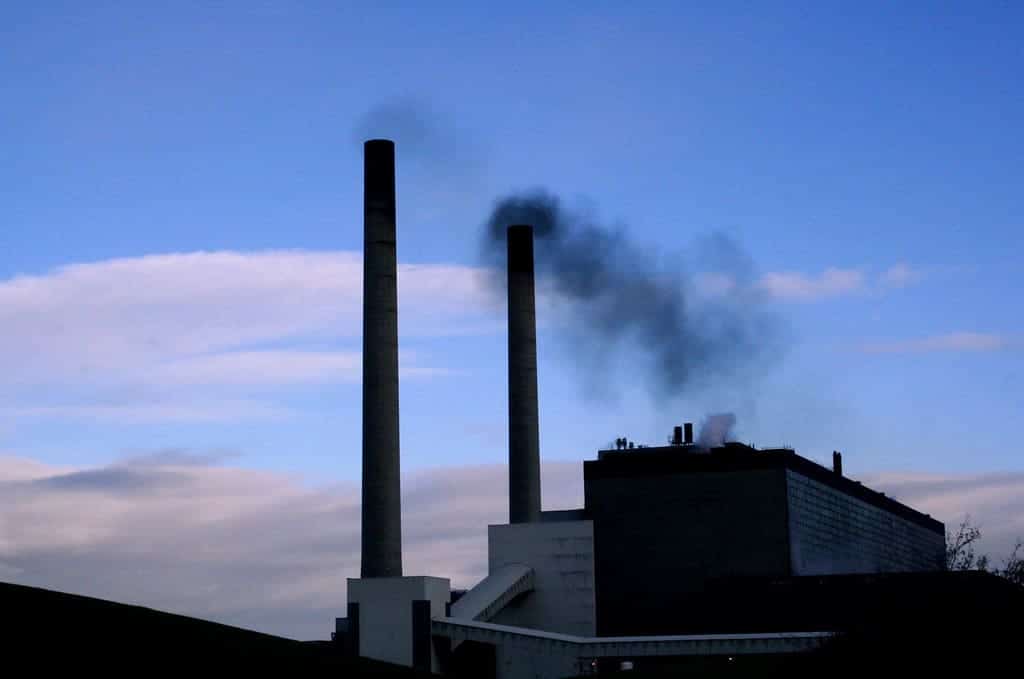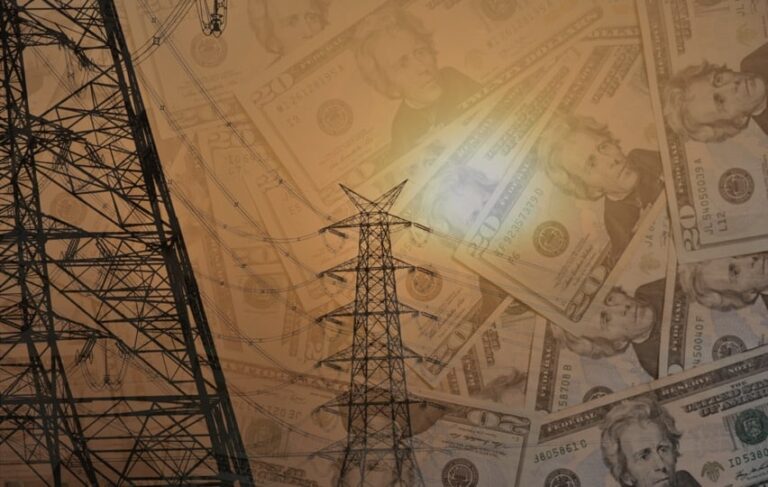Two Controversial Virginia Gas Plants Face Increasing Uncertainty, Documents Show

Two planned gas-fired power plants in Virginia are facing growing difficulties caused in part by the economic fallout of the coronavirus pandemic, according to recent documents filed by the plants’ developers with regulators. Independent power producers have proposed both plants – C4GT and Chickahominy Power – which are only a mile apart in Charles City. Residents and environmental justice allies are engaged in a growing opposition to the plants, which will be built in a majority African-American and native county.
The developers behind the two plants, which would have a combined capacity of 2,660 megawatts, aim to sell their generated electricity to the PJM Interconnection power market. C4GT first applied for a state permit in 2016, while Chickahominy Power followed suit a year later.
Yet trouble for the projects appears to be mounting.
Chickahominy’s Equity Issues
A recent statement filed with the Securities and Exchange Commission (SEC) by Argan Inc., whose subsidiary Gemma Power has been contracted to construct the Chickahominy Power plant, indicated that the project’s future is up in the air. “Due to several factors that are slowing the pace of the development of this project,” the company wrote, “including additional time being required to secure the natural gas supply for the plant and to obtain the necessary equity financing, we currently cannot predict when construction will commence, if at all.” (emphasis added).
For these reasons, Argan did not include Chickahominy Power Station in its backlog list for the total value of its projects.
The plant’s ongoing inability to secure financing has likely been compounded by its failed attempt to carve itself out of the Regional Greenhouse Gas Initiative (RGGI), a carbon trading program Virginia recently joined. As the Energy and Policy Institute revealed in February, a bill to provide the two Charles City County gas plants with carbon allowances that would have essentially exempted them from RGGI’s trading scheme in their first three years of operation was crafted by a lobbyist for Chickahominy Power. The ensuing outrage and pressure from opponents led the bill’s sponsor, Senator Lionell Spruill, to withdraw it shortly after it passed the state’s senate.
C4GT’s “slight delay”
C4GT is experiencing its own set of hurdles. While the plant has already received all of its state permits, it still needs to secure the gas supply to fuel its turbines. Late last year, Southern Company’s subsidiary Virginia Natural Gas (VNG) began the permitting process for its Header Improvement Project, a 24-mile pipeline that will supply gas to C4GT. The project includes two new compressor stations and an upgrade to an existing one.
In recent filings to the State Corporation Commission, VNG indicated that C4GT – the pipeline’s main customer – is experiencing a “slight delay,” the exact details of which have been redacted. According to VNG’s statement, the delay is “due to uncertainty in the gas supply and financial markets caused by the spread of the novel coronavirus, or COVID-19.”
In a supplemental filing last week, VNG stated that it discussed the matter with C4GT, which indicated it is still committed to the project. Yet, for the first time, VNG also raised the possibility of continuing the pipeline without the power plant. In that case, VNG said, it will “petition the Commission for an amended [application] for a project within the scope of needs of participants at that time.”
The prospective pipeline’s other customers are two local gas distribution companies, Dominion’s Virginia Power Services Energy and NiSource’s Columbia Gas of Virginia.
SAVE’s Gearing Up for a Fight
In addition to the financial markets putting C4GT in some doubt, other forces might also prevent the completion of the power plant, along with VNG’s pipeline and compressor stations.
A recently formed coalition of environmental organizations has vowed to fight the Header Improvement Project. Concerned Citizens of Charles City County (C5), Virginia Pipeline Resisters, Chesapeake Climate Action Network, Virginia’s Poor People’s Campaign, and Richmond Interfaith Climate Justice are among the groups that have joined to form the Stop the Abuse of Virginian Energy (SAVE) coalition.
In its first move, the group demanded that the SCC postpone its public hearing on the project, scheduled for May 12. “Residents in the path of this project shouldn’t also have to fear the prospect of dangerous new pipelines, gas-fueled power plants, and compressor stations in their backyards at a time when they are already facing COVID-19,” the group said in a recent op-ed. “Certainly, they cannot safely attend the public hearing in May, or attend community events to learn about the project.”



